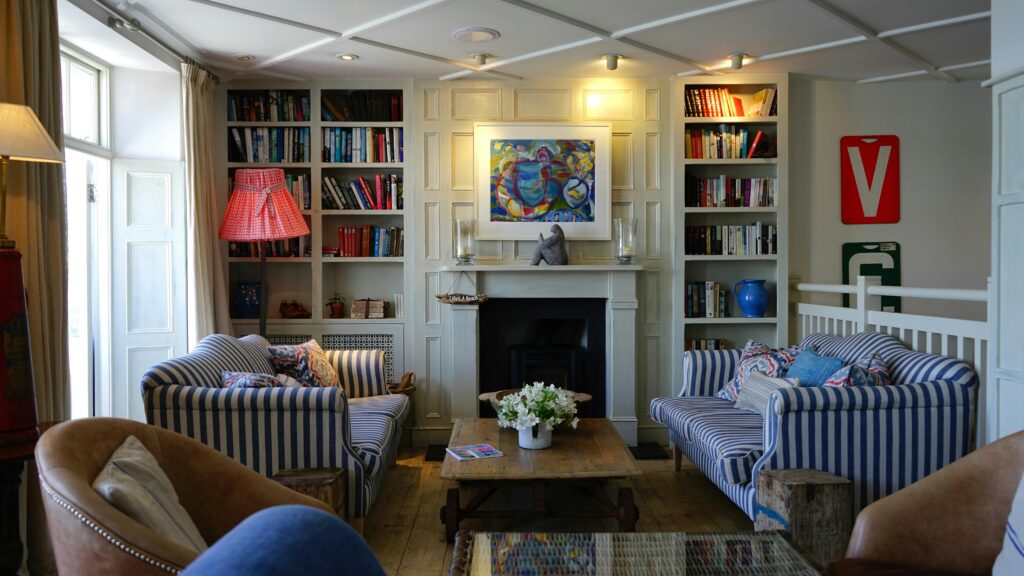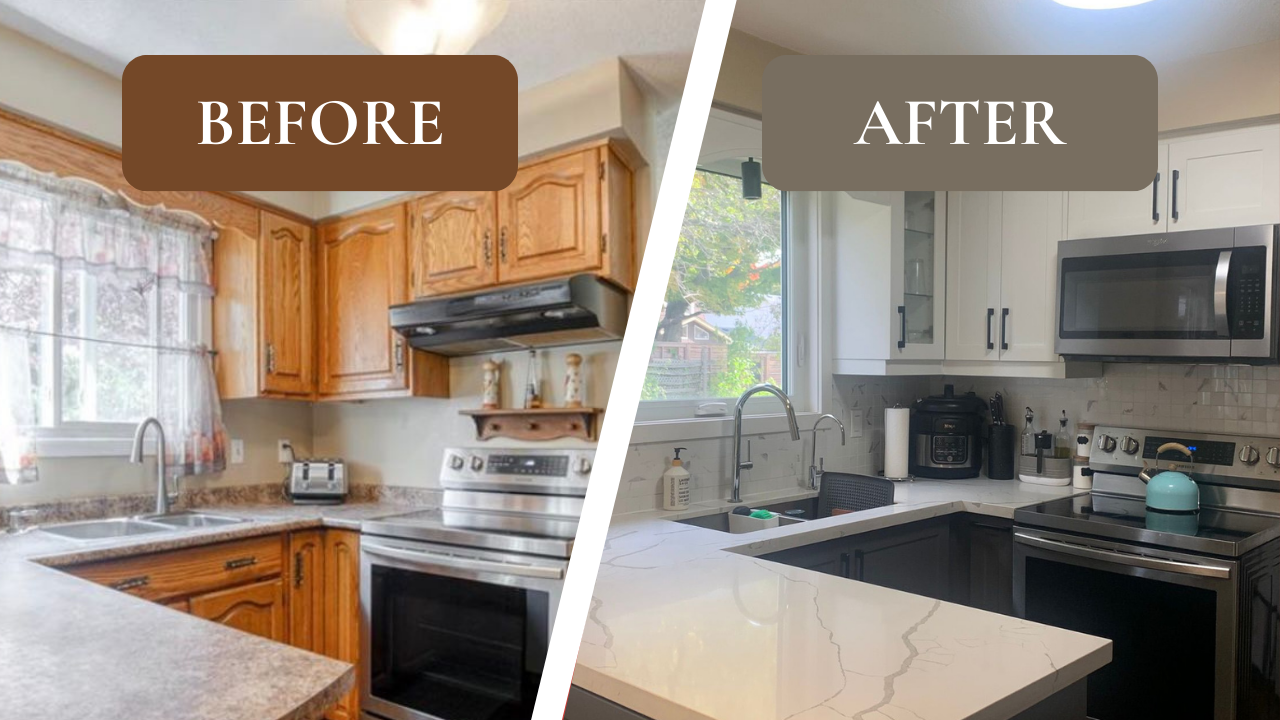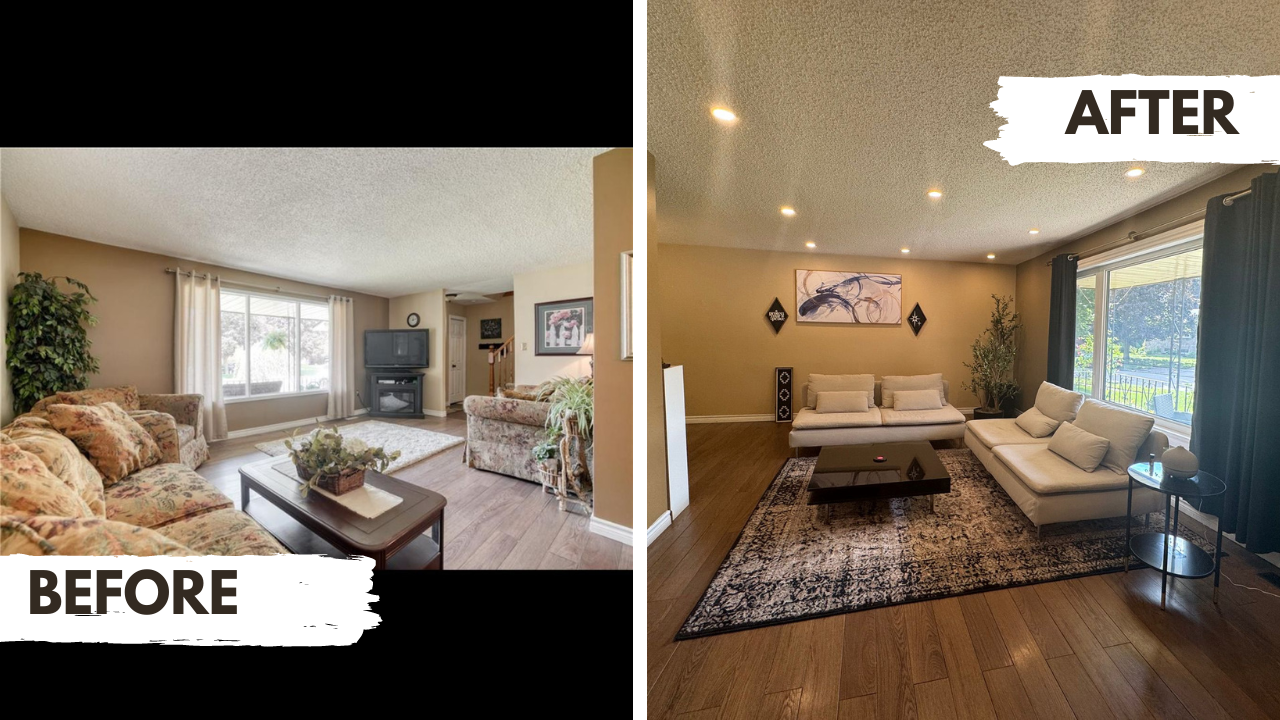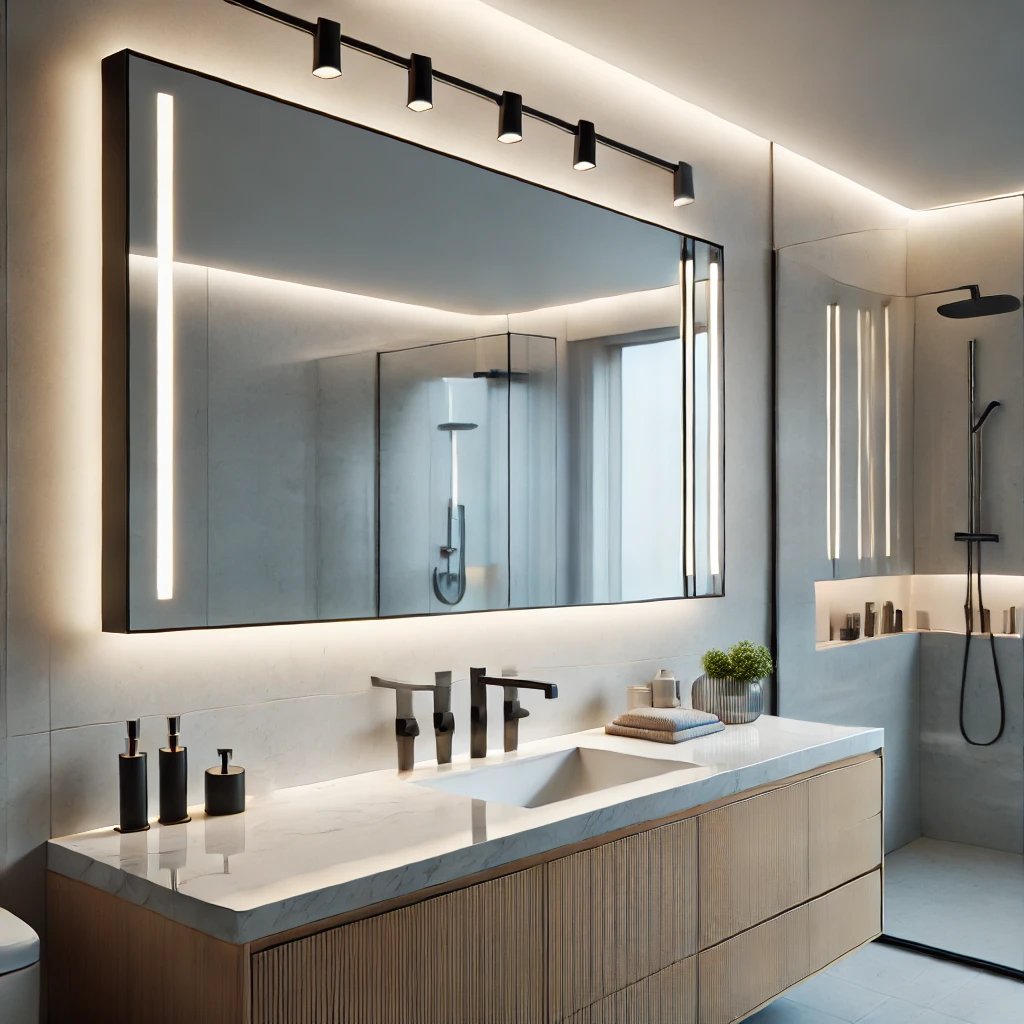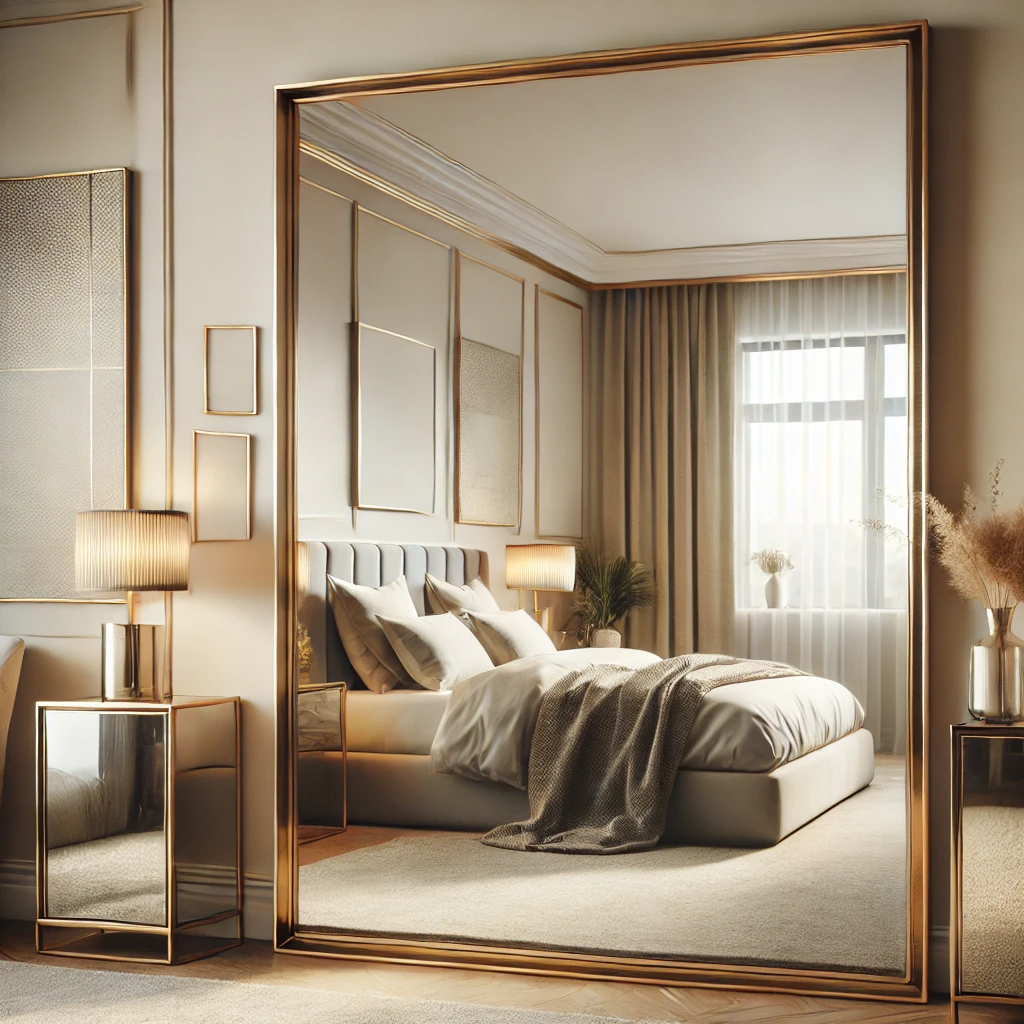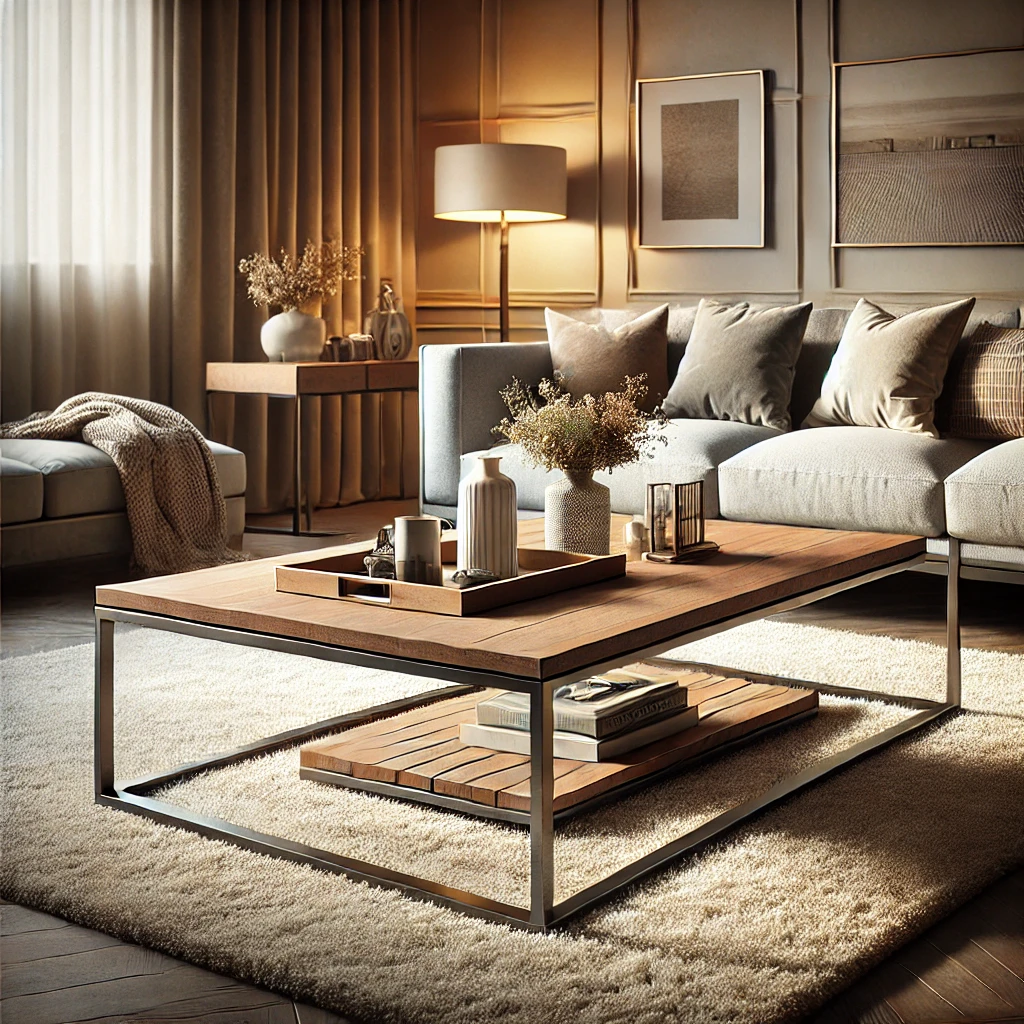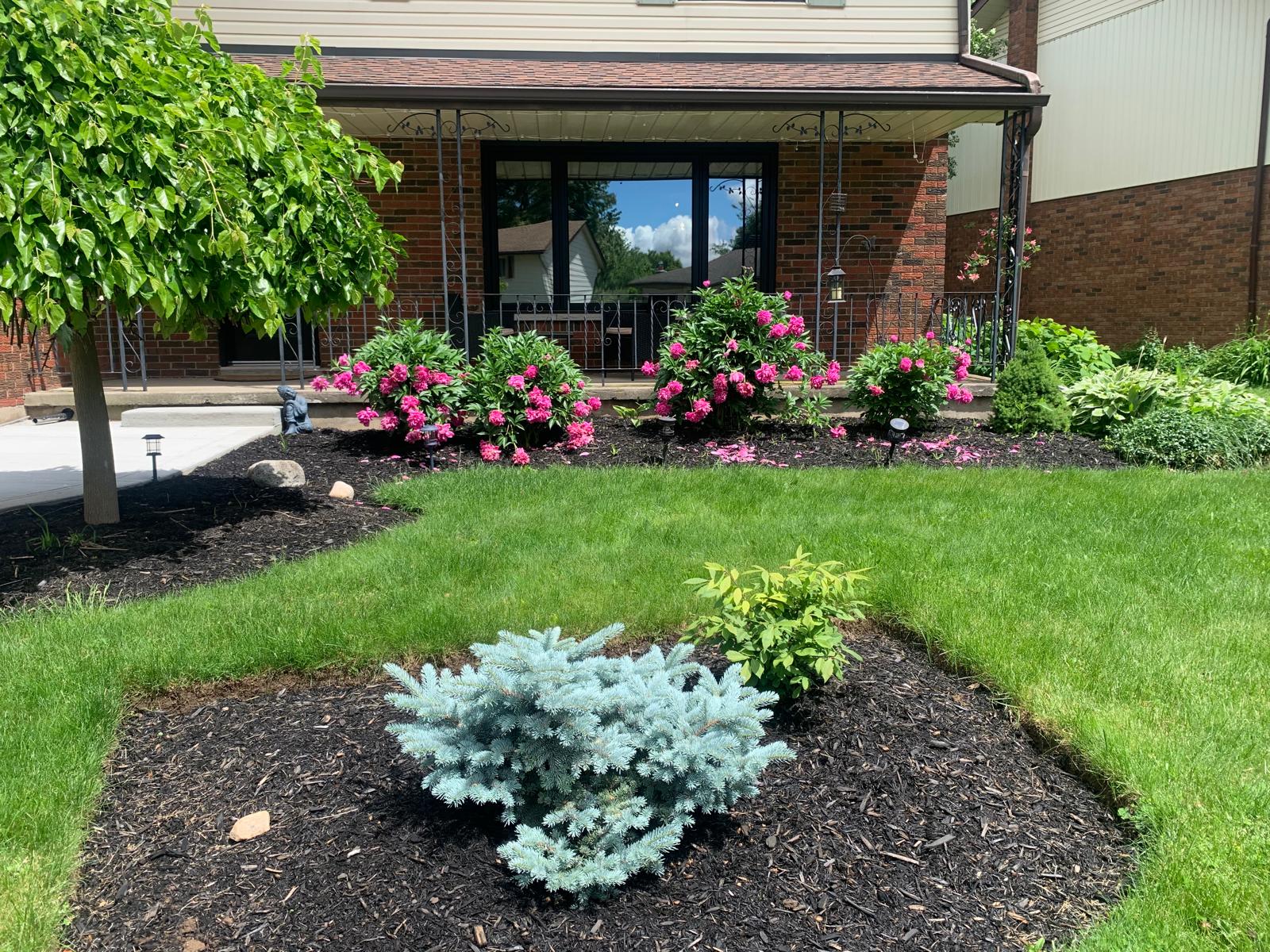Living in a small space means staying strong on style and functionality. With the right strategies, a small living room can be transformed into a cozy, stylish, and efficient haven. In this article, S&T Decor explores ten practical tips to help maximize small living room space without sacrificing comfort or aesthetics. From smart furniture choices to clever storage solutions, discover how to make the most of every inch of a living room.
What You Will Learn:
- Effective ways to use multifunctional furniture
- Strategies to make the most of vertical space
- Tips for maintaining a clutter-free environment
- How to optimize lighting for a spacious feel
- Techniques to visually expand your living area
- How to limit your color palette for cohesion
- Ways to layer your lighting for depth
- Benefits of opening up walls for natural light
- Creative use of mirrors to enhance space
- Advantages of open shelving for organization
Space-Saving Living Room Ideas
1. Choose Multifunctional Furniture
To maximize a small living room, opt for furniture that serves multiple purposes. This approach saves space and enhances functionality.
Convertible Furniture Select items like sofa beds and extendable tables that can adapt to different needs.
Storage-Integrated Pieces Furniture with built-in storage, such as coffee tables with drawers or sofas with hidden compartments, helps keep the living room organized.
Example:
- Sofa Beds: Perfect for turning a living area into a guest bedroom.
- Extendable Tables: Ideal for accommodating guests and saving space.
- Ottomans with Storage: Useful for storing blankets or magazines.
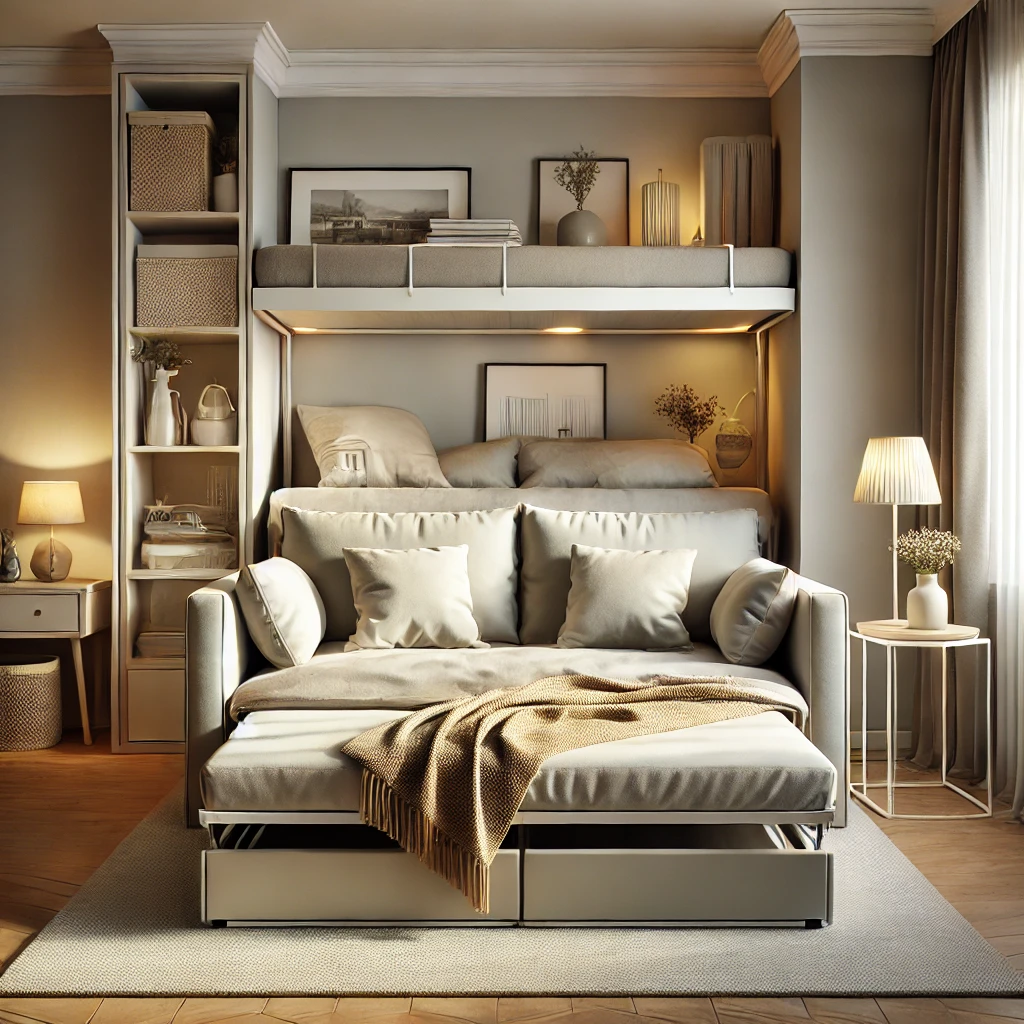
2. Utilize Vertical Space
Making use of vertical space can add both functionality and style.
Wall-Mounted Shelving Install shelves on walls to store items and display decor, keeping the floor space clear.
Tall Furniture Choose tall bookcases or cabinets to draw the eye upward and create the illusion of higher ceilings.
Example:
- Floating Shelves: Offer storage without taking up floor space.
- Tall Bookcases: Utilize vertical space for storage and display.
- Wall Hooks: Ideal for hanging coats and bags.

3. Declutter and Organize
A tidy space feels larger and more inviting. Implementing decluttering strategies can help maintain order.
Regular Decluttering Regularly review and remove items to prevent clutter from accumulating.
Smart Storage Solutions Use baskets, bins, and organizers to keep items in order and maintain a clean look.
Example:
- Storage Baskets: Store items like blankets and magazines.
- Under-Furniture Storage: Use bins under the sofa or coffee table.
- Built-In Cabinets: Seamlessly integrate storage into the room.
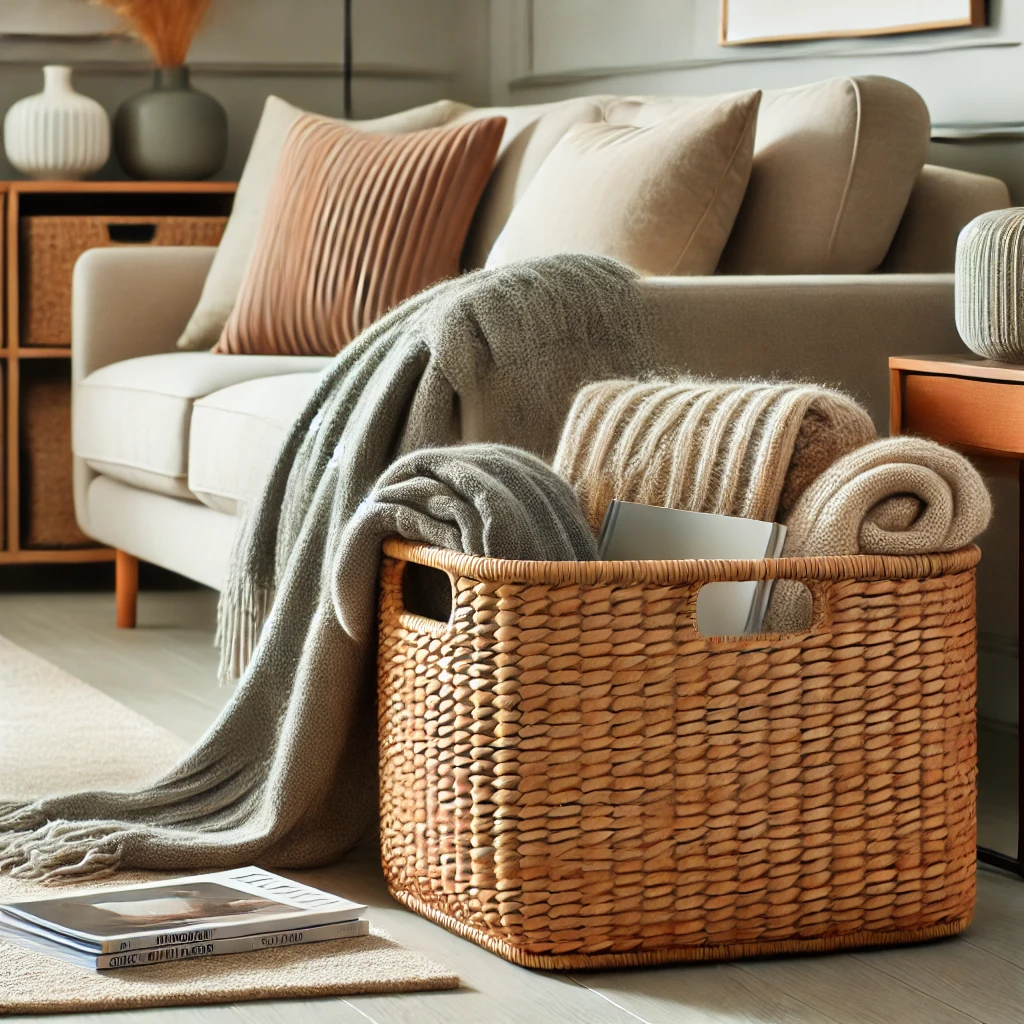
4. Optimize Lighting
Proper lighting enhances the feel of a small living room, making it brighter and more spacious.
Natural Light Maximize natural light by keeping windows unobstructed and using light, airy window treatments.
Layered Lighting Incorporate various light sources, including ceiling lights, lamps, and wall sconces, to create a well-lit, dynamic space.
Example:
- Sheer Curtains: Allow natural light to filter in while maintaining privacy.
- Mirrors: Reflect light to brighten and expand the room.
- Layered Lighting: Combine different light sources for a warm, inviting ambiance.

5. Create the Illusion of Space
Design tricks can make a small living room feel larger and more open.
Light Colors Use light, neutral colors for walls and large furniture to create a sense of openness.
Strategic Furniture Placement Arrange furniture to ensure clear walkways and avoid blocking light.
Example:
- Light-Colored Walls: Use a palette of light colors such as white, light gray, or other subtle hues.
- Floating Furniture: Place items away from the walls for a more open feel.
- Clear Paths: Maintain unobstructed walking areas.
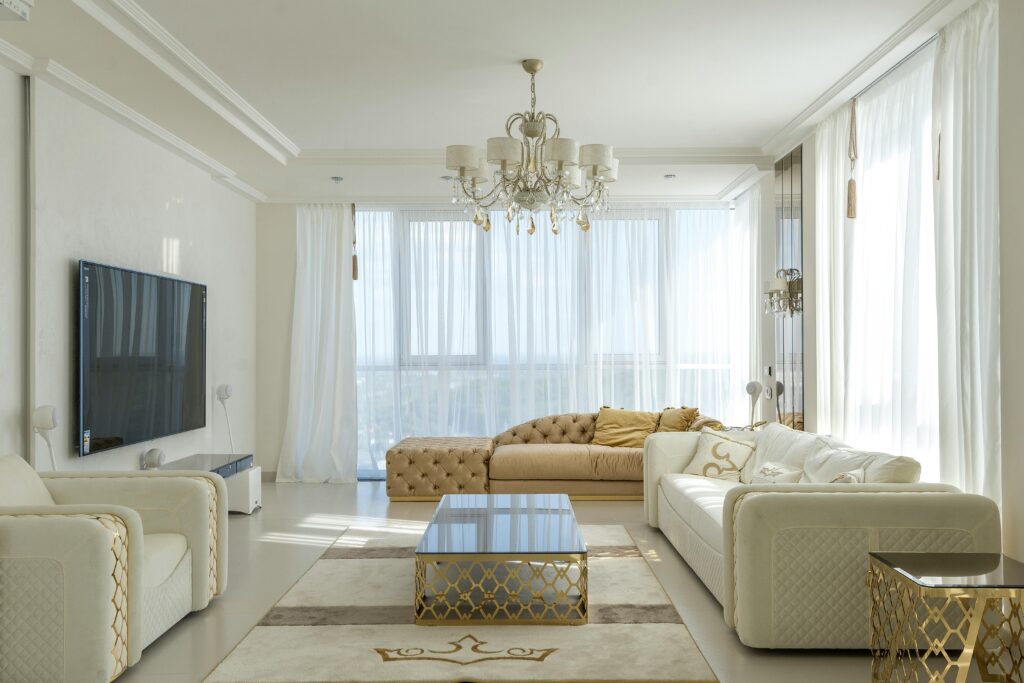
6. Limit the Color Palette
A consistent color scheme helps unify the room and enhances the feeling of space.
Monochromatic Scheme Stick to a monochromatic or tonal color scheme for a cohesive look.
Accent Colors Add pops of color through accessories to maintain interest without overwhelming the space.
Example:
- Neutral Base: Choose neutral tones for walls and major furniture.
- Accent Accessories: Incorporate color through cushions, rugs, and artwork.
- Tonal Variations: Use different shades of the same color for depth.

7. Layer Your Lighting
Effective lighting can add dimension and warmth to a small living room.
Multiple Light Sources Use a combination of overhead lights, table lamps, and floor lamps to create a well-lit and layered effect.
Adjustable Heights Adjust the height of lighting fixtures to add visual interest and depth.
Example:
- Pendant Lights: Hang at different heights for a dynamic look.
- Table and Floor Lamps: Create cozy nooks and highlight specific areas.
- Wall Lights: Add ambient lighting and accentuate features.

8. Open Up Walls
Enhancing natural light and creating open spaces can make a small room feel larger.
Floor-to-Ceiling Windows Consider large windows or glass doors to bring in more light and connect with the outdoors.
Light-Colored Walls Opt for light-colored walls with white trim to enhance the feeling of space.
Example:
- Large Windows: Increase light and views by installing floor-to-ceiling windows.
- Glass Doors: Use to visually extend the room.
- Light Paint Colors: Paint walls in light hues to reflect light and create an airy feel.

9. Install Mirrors
Mirrors can reflect light and create the illusion of a larger space.
Strategic Placement Place mirrors opposite windows or other mirrors to amplify light and space.
Decorative Mirrors Use mirrors as stylish focal points to enhance both functionality and design.
Example:
- Opposite Windows: Hang mirrors to reflect natural light and outdoor views.
- Mirror Wall: Create depth with multiple mirrors.
- Statement Mirrors: Use mirrors with unique frames as design features.
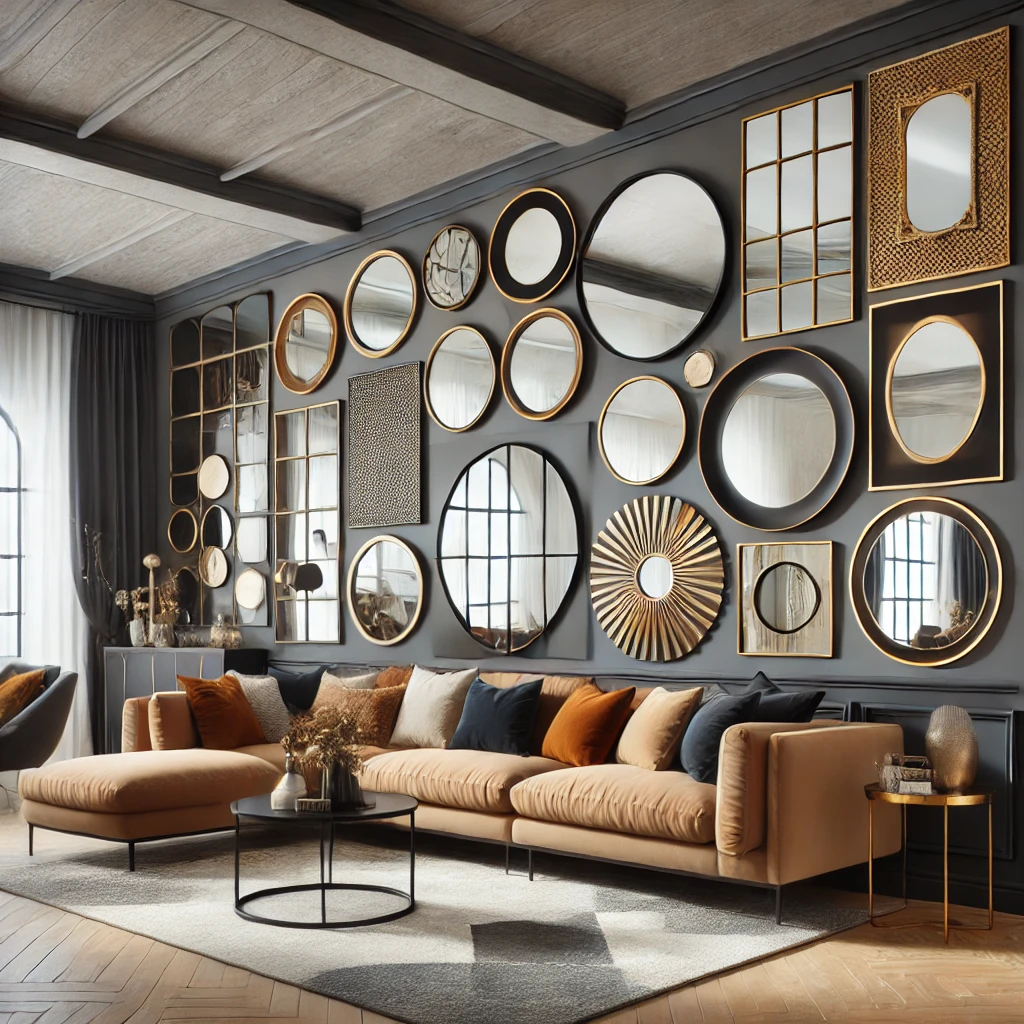
10. Opt for Open Shelving
Open shelving can keep the space airy and organized.
Airy Design Choose open shelving units that do not block light or crowd the room.
Styled Shelves Maintain a tidy appearance by keeping shelves organized and well-styled.
Example:
- Floating Shelves: Install for a minimalist look and extra storage.
- Open Bookcases: Display and store items without closing off the space.
- Styled Vignettes: Arrange items in curated groups for a clean, cohesive look.
